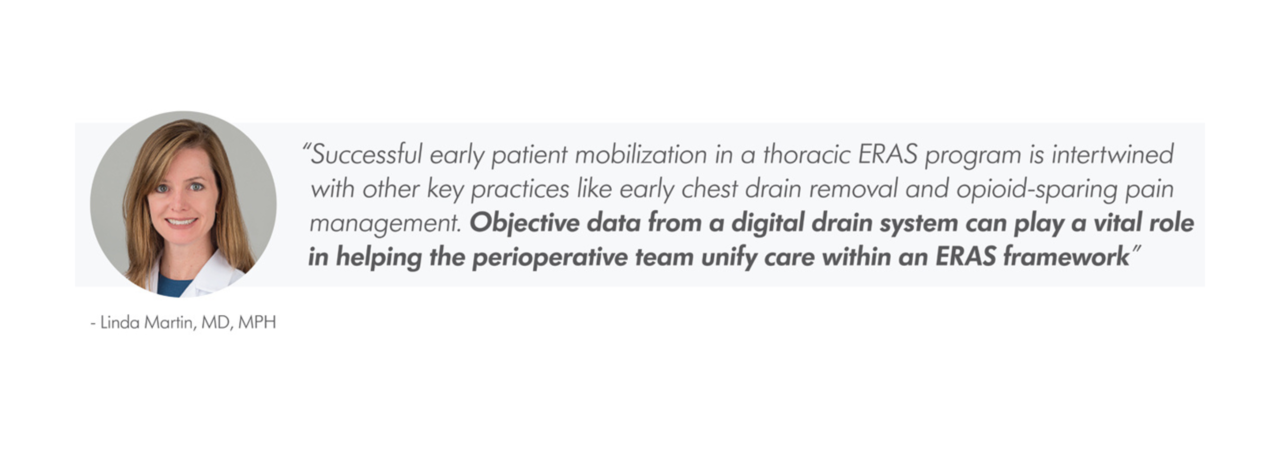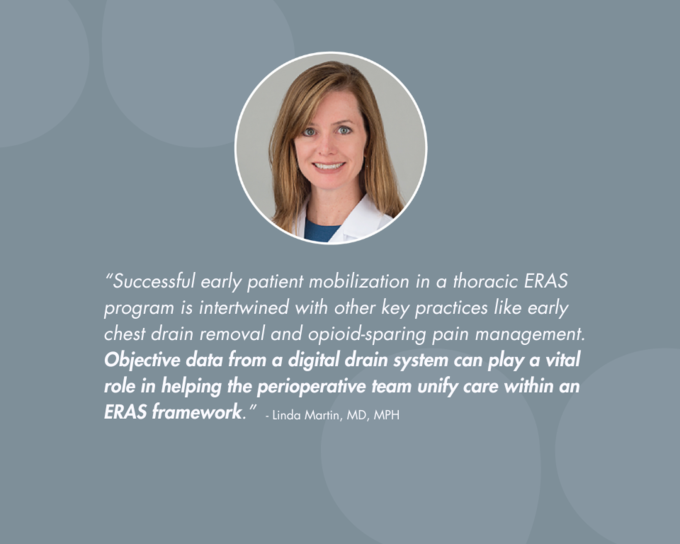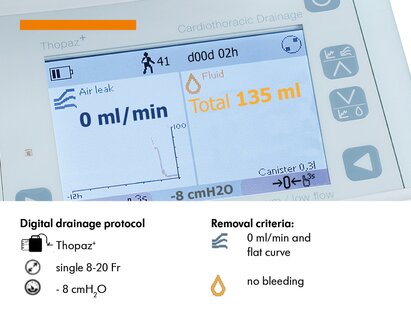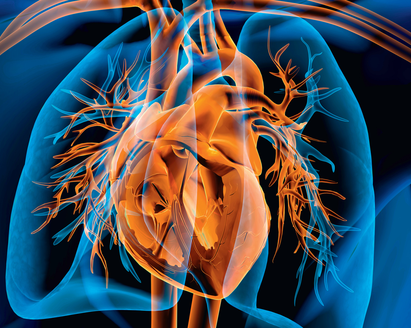Key Message
Digital chest drain data can support enhanced recovery after thoracic surgery practices and goals
Summary
Dr. Martin reviewed the most current guidelines for enhanced recovery after lung surgery, issued jointly in 2019 by the Enhanced Recovery After Surgery (ERAS) Society and the European Society of Thoracic Surgeons (ESTS).1 The 45 perioperative recommendations elements provide a patient-centered approach to achieving safe, rapid, postoperative homeostasis, comfort, and mobilization, enabling home recovery and the fastest-possible return to normal activities with optimal clinical outcomes after thoracic surgery.
The Role of Drainology
Drainology plays an essential role in optimization of postoperative comfort care and patient mobilization. Chest tubes are a significant source of postoperative pain and discomfort, which, along with air leak and pneumonia, represents a major obstacle to successful ERAS. A comprehensive approach to chest tube management is interdependent with ERAS strategies for opioid-sparing pain control and early mobility.2 For example, based on clinical experience in more than 1500 patients, Dr. Martin recommends intraoperative use of long-acting posterior intercostal blocks to get ahead of postoperative chest tube pain; at the same time, early chest tube removal supports opioid-sparing pain protocols and facilitates early mobilization critical to ERAS success.3
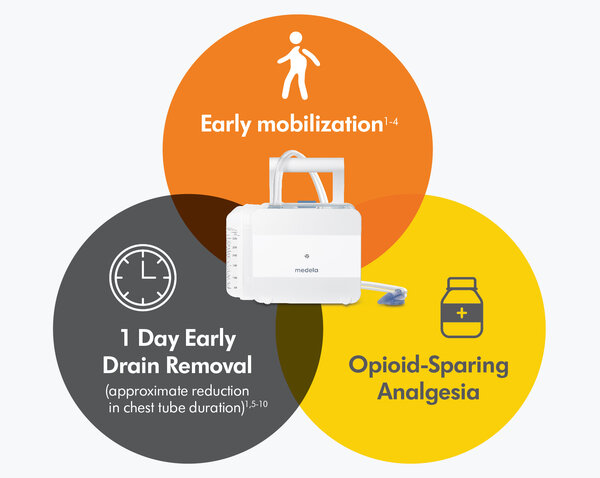
Expert recommendations for ERAS-compatible chest tube management include:
• use one tube instead of two
• use tubes of smaller caliber
• avoid routine application of wall suction
• use digital drainage to reduce variability in decision-making.2
At her institution, Dr. Martin and her team follow the simple, “No A, No B, No C” rule, which entails pulling chest tubes when air leak, blood, and chyle are absent, regardless of drain volume. Blood and chyle are simple to evaluate, while decisions around air leak management can be influenced by choice of chest drainage system. Further, the ability to discharge patients home with a portable, digital drain system could shorten length of stay.
Clinical Pearl
Dr. Martin presented a clinical pearl for site closure after chest tube removal, using a barbed monofilament absorbable suture that closes the wound, eliminates suture discomfort, and allows patients to shower immediately.4 Finally, she noted that new guidelines were forthcoming from the Society of Thoracic Surgeons, and emphasized that, regardless of practice ideals, surgeons ultimately must make chest tube management decisions based on their real-world settings and must also consider their patients’ socioeconomic situations and perspectives regarding early discharge to home and discharge with indwelling chest tubes.












